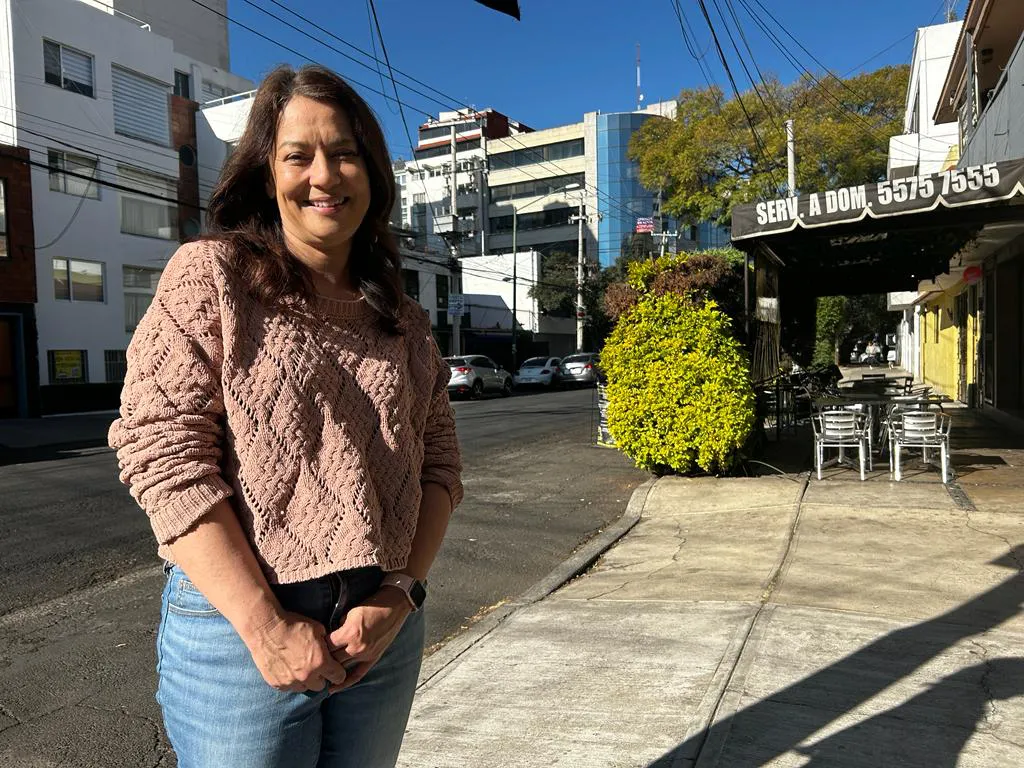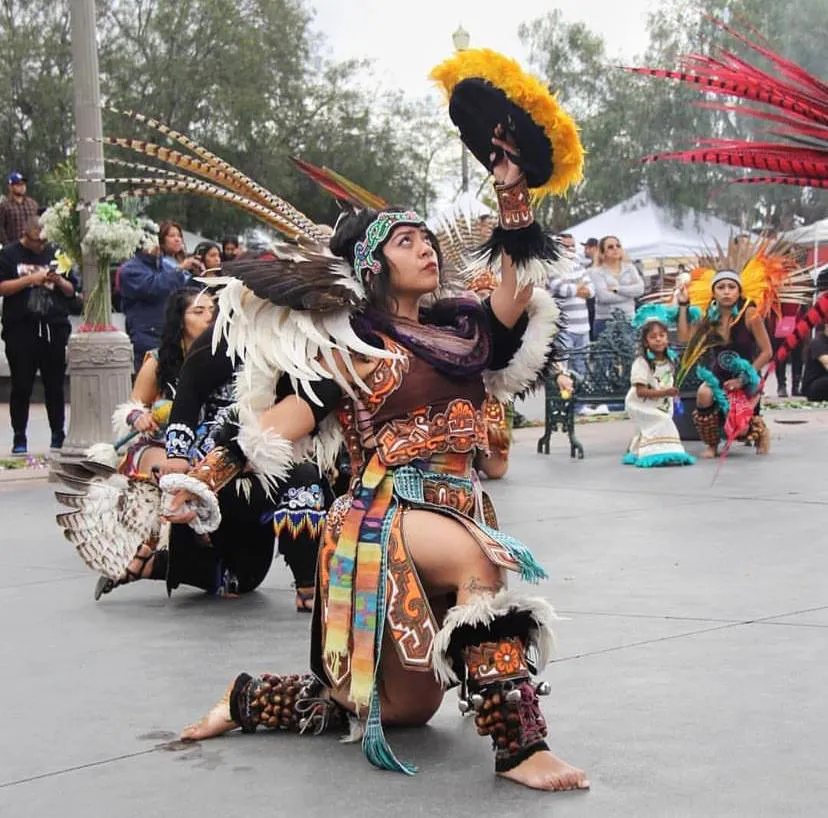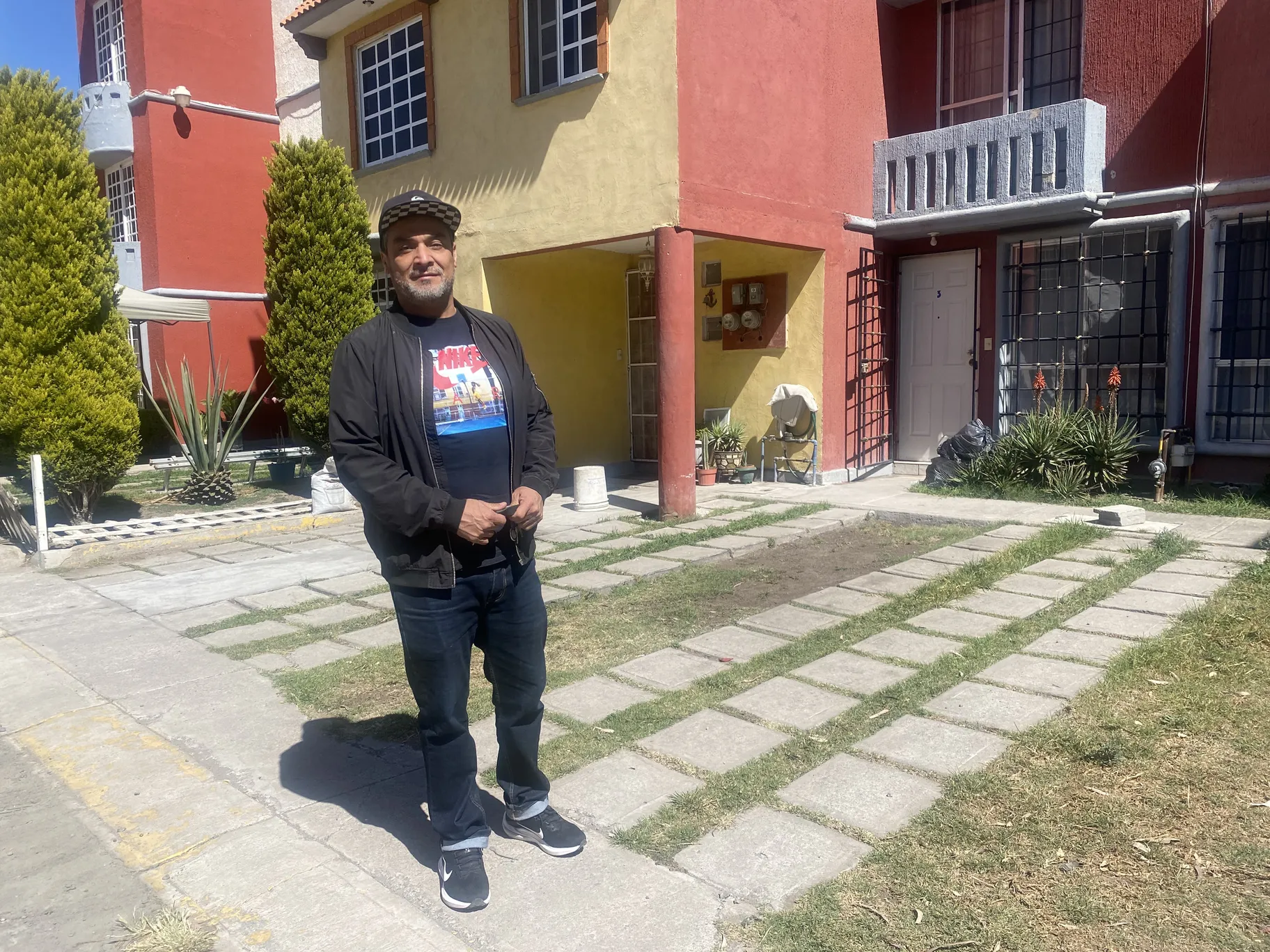‘One more nail in the coffin for CA’: Mexico attracts more expats
5 min readDuring the COVID-19 pandemic, Colleen Rodríguez suddenly faced a looming crisis when her landlord decided to sell the house she rented in Upland.
Her kind-hearted landlord, who had long given her a deal on rent, offered to sell Rodríguez the house at a below-market rate. But as a single mom working in education, she couldn’t afford the nearly $600,000 price tag.
“I was waking up at three in the morning every night, like what am I going to do?” Rodríguez said.
So, Rodríguez made a drastic move. She found a new, remote job with a tech startup, packed up her life, and moved to Mexico City with her 12-year-old son. The apartment she now rents near the city center is roughly half of what she used to pay in Upland.
A growing number of Americans are moving to Mexico as the cost of living has risen substantially in places like California. Since the pandemic, the Mexican government says the number of American citizens applying for residency has nearly doubled.
Many newcomers in Mexico City have taken advantage of the rise in remote work to start fresh lives in a more affordable country. The trend is ironic at a time when record numbers of migrants are arriving at the U.S. border, escaping poverty or violence.
Some Los Angeles transplants in Mexico have parents or grandparents who took the same journey decades ago, immigrating from Mexico to states on the U.S. border like California. For them, the move to Mexico is more personal than many of the remote workers who have arrived recently.

A lowrider show takes place in downtown Mexico City. Los Angeles and the Mexican capital have long shared deep cultural ties because of immigration. For decades, Mexican immigrants brought their culture to Los Angeles. Now many of their children and grandchildren are moving to places in Mexico and influencing the communities they have arrived in. Photo by Levi Bridges.
Colleen Rodríguez’s grandfather was born in Mexico City and immigrated to East LA as a young man. But growing up, Rodríguez’s parents didn’t speak Spanish at home. Rodríguez always had this idea in the back of her mind to move to Mexico one day to master Spanish and explore her family’s roots.
Shortly after arriving in Mexico City, she befriended a distant relative. Rodríguez said she feels like there is more of a sense of community in Mexico City compared with the LA suburbs where she grew up. When she had to go out of town recently, new friends immediately offered to watch her son.
Rodríguez said it was the moment she decided that she didn’t want to return to LA.
“That was just one more nail in the coffin for California,” Rodríguez said, referring to the offers of support she received.

Colleen Rodríguez’s grandfather immigrated to LA from Mexico City, but growing up, Rodríguez felt disconnected from Mexico and didn’t speak Spanish. She always dreamed of moving to Mexico one day. The rising cost of housing in LA County finally motivated her to leave her home in Upland and move to Mexico City last year. Photo by Levi Bridges.
Other Mexican Americans come to Mexico intending to stay temporarily, then discover they actually prefer living in the country.
Thirty-year-old Tlahui González, of Boyle Heights, first visited Mexico City five years ago to study traditional dances, often referred to collectively by English speakers in the community with the Spanish word danza.
The daughter of undocumented immigrants, González started learning danza growing up in Boyle Heights. For her, it became a way to connect with the culture of the small village in the Mexican state of Jalisco that her parents left.
“I can honestly say danza was something that naturally called to me,” she said.

Tlahui González started learning traditional dance five years ago in Mexico City. Photo by Levi Bridges.
González didn’t intend to stay in Mexico. But while she was visiting, she fell in love with a local man and they had a son together.
In Mexico, González can give her child a lifestyle that would be much harder to accomplish in LA. She primarily makes her living as a jewelry creator, a profession that allows her to spend time with her son but wouldn’t be enough to pay the bills in LA.
González’s parents were gone a lot, working different jobs to make ends meet when she was growing up. She decided she doesn’t want that for her child.
“I wouldn’t go back [to California] because right here I am able to be there for my son, which is something I guess I never had.”
Returning to Mexico isn’t always a voluntary decision. The U.S. government is deporting increasing numbers of immigrants to countries such as Mexico.
Daniel Palomino, 50, entered California without documentation, along with his parents as a teenager. He spent nearly two decades living in LA County. He was deported from LA more than a decade ago after getting pulled over in a routine traffic stop, and police discovered he did not have authorization to be in the United States.
Returning to Mexico with his family still in California was wrenching. Plus there were little things that hurt — he misses Taco Bell. Palomino used to love the hard-shell tacos and salsa at the fast food chain.
“At Domino’s Pizza [in Mexico], they give some salsa that tastes almost the same as Taco Bell, so I save those little packets, and when I have enough, that’s when I make some Taco Bell [at home],” Palomino said.
When he was deported, Palomino had just completed an associate’s degree at El Camino College in engineering science. He intended to become the first person in his family to earn a four-year bachelor’s degree.
Not completing that goal was a big disappointment. But Palomino’s U.S. education is part of what helped him get a good job in Mexico, traveling around the country maintaining refrigeration units.
Today, Palomino owns two houses in Mexico, and he just finished putting an addition on one. Acquiring assets like that would probably have been impossible for him had he stayed in LA. He misses Taco Bell, but he doesn’t miss the LA hustle.

Daniel Palomino stands outside one of two homes that he owns in Mexico. Palomino lived in Los Angeles for nearly two decades as an undocumented immigrant, but has managed to create a more comfortable and less stressful life in Mexico. Photo by Levi Bridges.
“Two paychecks for the rent, another one for the car and another to eat – that’s your life,” Palomino said from the kitchen of his refurbished home in the Mexico City suburb of Cuautitlán.
So many foreigners have moved to Mexico City recently, that landlords have taken notice. Repeating a common pattern in the U.S. when people leave large, expensive cities for more affordable areas, rents in some Mexico City neighborhoods are now skyrocketing.


